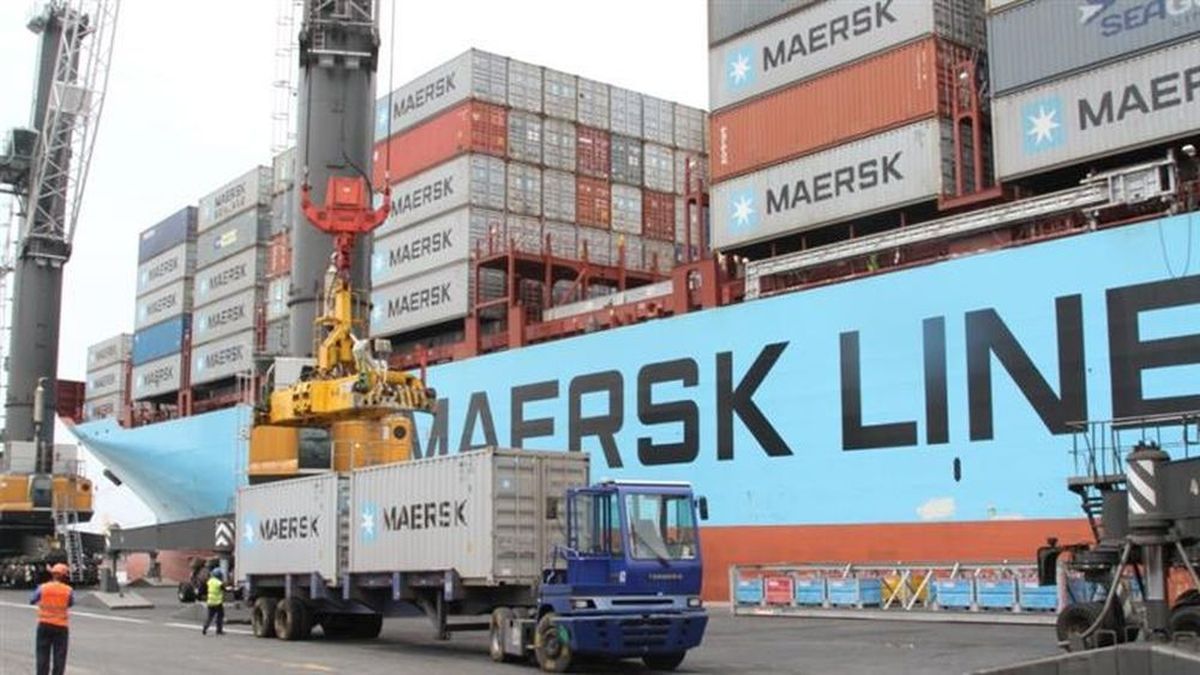The United States is Argentina’s third largest trading partner and the main creditor in terms of financing, so it plays a role key in the Argentine economy. With the recent victory of donald trumphe commercial link could undergo profound changes. The protagonists of foreign trade consulted by Scope They have already expressed their first signs of alarm in the face of this new scenario: exporters worried about international prices and importers waiting for signs of what may happen with the exchange rate. All this added to the decisions in terms of protectionism that the Republican may adopt in his second term.
First of all, it is important to make a small revision of what the US implies for Argentina. As highlighted Marcelo ElizondoPresident of the International Chamber of Commerce (ICC) in Argentina, in a recent report, the US “is the largest export destination for Argentine services and is the country from which the largest amounts of the total stock of foreign direct investment present have come.” in our country,” he explained. Besides, It is one of the main suppliers of inputs and technology for the production of the local economy.
According to data provided by INDEC, The US is the third largest destination for Argentine exports of goods and the third largest supplier through imports.
However, Elizondo adds, “in comparative terms, the intensity of the bilateral relationship is very less than the potential and efforts should be made to improve it. Argentina is one of the five countries with the lowest participation of international trade in its economy on the planet and the one with the lowest ratio of foreign investment in relation to GDP in our region. And the United States is the largest importer in the world and the largest foreign investor on the planet.”
Trump to power: doubts and a couple of certainties
In that context, a report prepared by Invecq reflected the main points in the financial aspect that must be taken into account, although he warns that there is no clarity in the medium term.
- Trump would apply a 10%-20% tariff on all imports. This would translate into a higher price level for the US economy and it is expected that the Fed will continue to cut its reference rate even if the reduction is more gradual. This impacts the cost of the debt that Argentina maintains in hard currency.
- A stronger dollar has several negative impacts for Argentina: according to Invecq, it implies a reduction in capital inflows, depreciation of emerging currencies, and a drop in the price of commodities. Regarding the latter, in addition, soybeans will have to be closely monitored (it is expected that there will be an oversupply in 2025, which is already reflected in lower prices).
- “Unexpected benefits” due to the trade war with China: according to Invecq, when the same thing happened in Trump’s previous term, the price of soybeans on the Rosario Stock Exchange (BCR) “decoupled” from that of Chicago at the moment of greatest tension between both countries.
usa argentina.jpg
For entrepreneurs, the key is to improve competitiveness by lowering company costs.
New Trump era: shipments to the US could worsen for exporters
Fernando Landa, president of CERA (Chamber of Exporters of the Argentine Republic) and co-president of the Trade and Investment group of the B20 Brazil 2024, highlighted the trade agenda that the country has with the United States, among whose aspects is the pending regulatory approval for the entry of sweet citrus, the reactivation of the system of preferences (SGP) and the inclusion of national lithium in the Inflation Reduction Act. But there are also products that are under countervailing duties or antidumping actions such as honey and the OCTG pipeline where Argentina already had losses in important markets as in the case of biodiesel.
“In international terms and in the face of the crisis of multilateralism in relation to rules-based trade, the two fundamental dimensions to observe are: on the one hand, the potential increase in tariffs, which taken as an individual effect would worsen Argentine exports, but also the escalation of the dispute with China and its effects in terms of retaliation and trade diversion,” Landa explained.
“With all this in consideration, Argentina as a zone free of war conflicts must accelerate its process of gaining competitiveness, be a credible partner that allows establishing long-term trade and investment links. There was a lot of talk about the possible effects of the financial dimension but we consider that, particularly in the possible future environment, the Competitiveness must be the fundamental agenda for the generation of employment and development“he concluded.
Importers rule out massive purchases from the US and warn of exit from the stocks
For your partFernando Furci, president of the Chamber of Importers, In conversation with this medium, he stated something fundamental: “Trump is a businessman and usually has a pragmatic spirit. “We have to wait for the political execution.”
At first, he pointed out that although Trump’s victory could be an “uncomfortable” situation for Argentina due to the impact on commodity prices, which would generate “greater exchange rate pressure”, the greatest emphasis he placed on this situation could generate greater demand for dollars and slow down the exit of the stocks. Furthermore, in principle he ruled out an “import wave” to the US.
“The desirable thing is to eliminate the stocks to regularize the financial part of foreign trade in its entirety,” Furci remarked and pointed out some changes that he has seen in the sector in recent months: “We already see suppliers abroad that have begun to give credit to Argentina,” although there is still work ahead.
“From the point of view of competitiveness, Argentina could be more expensive in dollars and the best way to compensate is accelerate deregulation and cost reduction processes in general to improve the pressure that companies have. If Argentina manages to be more competitive in the medium term, there may be opportunities for business with the US. It is a difficult scenario, but possible,” Furci concluded.
Source: Ambito
I am Pierce Boyd, a driven and ambitious professional working in the news industry. I have been writing for 24 Hours Worlds for over five years, specializing in sports section coverage. During my tenure at the publication, I have built an impressive portfolio of articles that has earned me a reputation as an experienced journalist and content creator.




